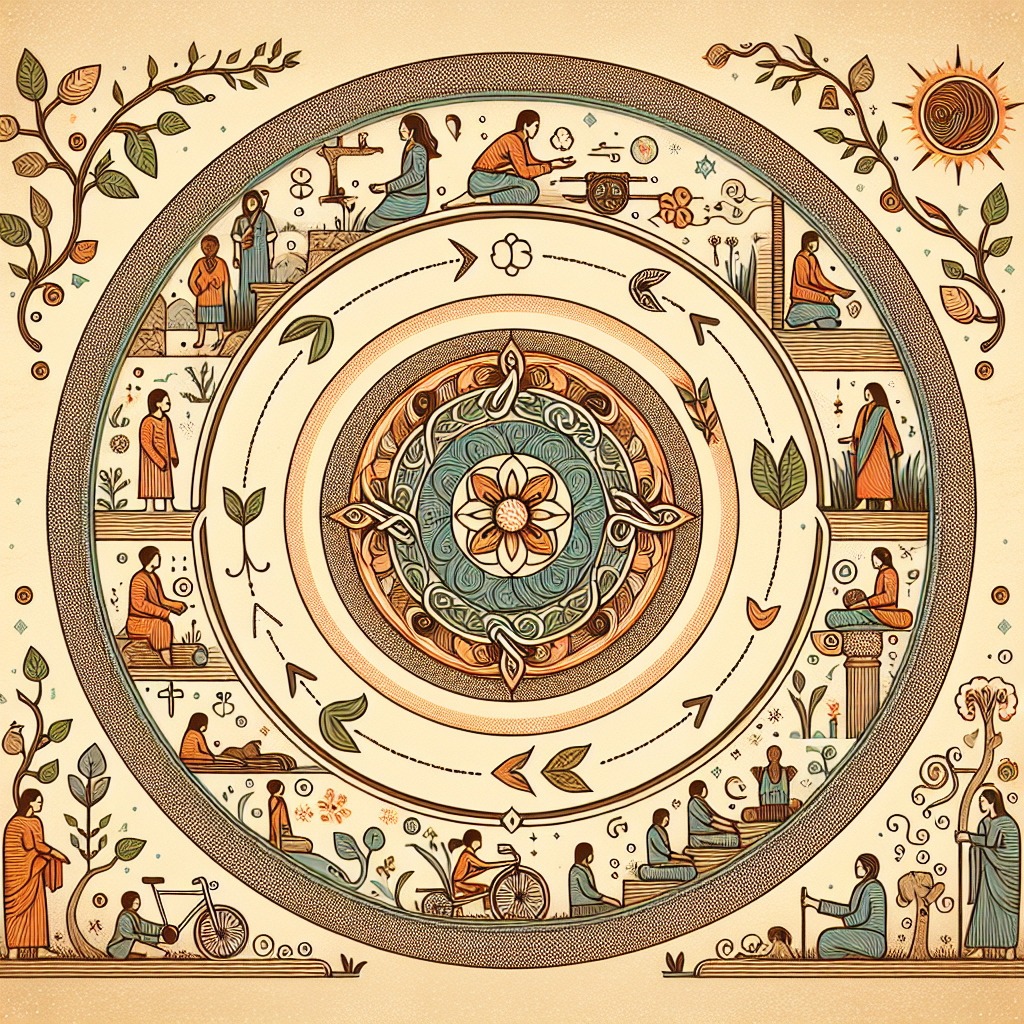Karma is a term rooted in ancient Indian philosophy that has pervaded various cultures and religions around the world. Often simplified to mean “what goes around comes around,” karma is a complex and multifaceted concept that delves into the repercussions of our actions. It serves as a guiding principle for ethical behavior and personal responsibility, influencing not only individual lives but also the interconnected web of societal interactions.
The Fundamentals of Karma
At its core, karma is defined as the principle of cause and effect. Every action—whether positive, negative, or neutral—sets off a series of consequences that generate experiences, affecting both the doer and the recipients involved. This cycle of action and consequences is often illustrated through the phrase, "As you sow, so shall you reap." But karma is not merely about punishment and reward; it is fundamentally about growth, learning, and development.
In the broader context, karma encompasses several elements:
Intentions Matter: Karma is not just about the action performed; the intention behind the action is equally important. A benevolent action fueled by sincere goodwill carries a different weight than the same action performed out of selfish motives.
The Cycle of Rebirth: In Hinduism and Buddhism, karma plays a crucial role in the cycle of samsara—birth, death, and rebirth. Actions taken in one life can determine the circumstances of future lives, influencing the cosmic balance of existence.
- Collective Karma: Not only individuals but societies can accrue karma through collective actions. Decisions made by governments or large organizations have far-reaching consequences, echoing through generations.
How Karma Influences Our Daily Lives
The Personal Dimension
On a personal level, karma shapes individual experiences and relationships. Here are various ways karma manifests in our lives:
Interpersonal Relationships: The way we treat others often determines the quality of our relationships. Acts of kindness can foster love and appreciation, while harmful actions can lead to estrangement or discord.
Career and Success: Hard work, integrity, and collaboration often yield positive outcomes in professional settings. Conversely, unethical behavior may bring short-term gains but lead to lasting consequences.
- Emotional Well-being: Positive karma enhances self-esteem and promotes mental well-being. Good deeds can bring joy, while negative actions can lead to guilt, remorse, and anxiety.
The Collective Dimension
Karma also permeates societal interactions:
Social Justice: The cumulative karma of a community affects social justice dynamics. Actions taken towards equity can bring healing, whereas discriminatory practices perpetuate cycles of oppression.
Environmental Responsibility: Humanity’s interaction with nature can result in positive or negative environmental karma. Sustainable practices lead to a healthier planet, while exploitation depletes resources, affecting future generations.
- Historical Consequences: Nations may carry karmic repercussions from historical actions, such as colonization or war, influencing contemporary relationships and social structures.
Breaking the Cycle of Negative Karma
Understanding the cycle of karma may present a daunting task, especially if one feels trapped in negative patterns. By recognizing the cyclical nature of actions, one can begin to implement changes that promote positive karma.
Mindful Awareness
First, awareness is crucial. Reflecting on daily actions and their effects enables a person to recognize patterns. Practicing mindfulness can enhance this awareness, leading to more deliberate decision-making.
Intentional Action
By aligning actions with positive intentions—compassion, empathy, and service to others—one can sow seeds of good karma. Acts of kindness not only uplift others but also nourish the self, creating a ripple effect that extends beyond immediate interactions.
Forgiveness and Release
Letting go of grudges and resentments is vital in transforming negative karma. Embracing forgiveness allows individuals to free themselves from the emotional weight of past actions, creating space for healing and renewal.
Making Amends
When aware of previous harmful actions, making amends offers a pathway to redress. This could involve apologies, reparations, or simply altering future behaviors. Taking responsibility can shift personal karma positively.
The Road to Enlightenment
Ultimately, the journey through the cycle of karma is a path toward spiritual growth and enlightenment. By understanding how our actions shape both our lives and the world around us, we can cultivate a more harmonious existence. This awareness leads to a deeper connection with ourselves, others, and the universe.
Through compassionate action, we contribute to a positive cycle of karma that enriches both ourselves and those we interact with. The insight gained from understanding karma can be a powerful motivator for leading a life rooted in love, empathy, and positive influence.
Frequently Asked Questions (FAQs)
1. Is karma only a religious concept?
Karma originates from religious philosophies, particularly Hinduism and Buddhism, but its principles resonate in various cultural and ethical discussions. Many secular frameworks embrace the idea of cause and effect in human interactions.
2. Can karma be changed?
Yes, while past actions influence our current circumstances, individuals have the power to change their karma through present decisions. Positive actions can counteract negative karma and lead to transformative experiences.
3. Do bad things happen to people because of karma?
Not necessarily. While karma can explain certain negative experiences as consequences of past actions, countless factors contribute to life situations. It’s essential to view karma as a guiding principle rather than a deterministic rule.
4. How can I create positive karma?
Engaging in intentional acts of kindness, practicing empathy, and making ethical choices contribute to positive karma. Mindfulness and self-awareness also help navigate actions and their potential impacts.
5. Is there a time frame for karma to manifest?
Karma does not operate within a rigid timeline; its effects may be immediate or take years, even lifetimes, to manifest. It is essential to maintain patience and a long-term perspective.
6. If I am suffering, does it mean I have bad karma?
While suffering can sometimes relate to past actions, it can also stem from external circumstances, choices of others, or broader societal issues. Karma is just one factor among many that shapes our experiences.
By understanding the cycle of action and how karma works, individuals can cultivate a more conscious, compassionate existence that fosters personal and collective growth. With awareness, intention, and the courage to act, we can navigate our lives more mindfully, contributing positively to the world around us.
It seems you entered “Prompt” but didn’t specify what you would like assistance with. Could you please provide more details or clarify your request? Whether you need help with writing, generating ideas, or something else, I’m here to help!, #Cycle #Action #Understanding #Karma #Shapes #Lives, #Cycle #Action #Understanding #Karma #Shapes #Lives, 1736639547, the-cycle-of-action-understanding-how-karma-shapes-our-lives





